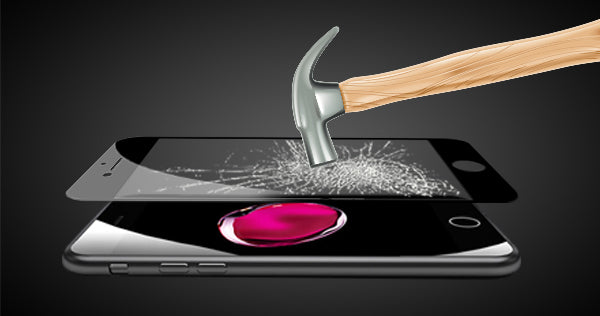
Why do you need a Glass Protector for your phone?
Smartphones are gadgets that we can’t live without anymore! We can’t imagine our day without these things. But what if it crashes on the floor and breaks its screen? How will you use it? Let’s explore the types of screen protectors available in the market and find out, how to select the best glass protector for your phone. Stay tuned to find out!
With the high cost of smartphones, many owners feel it’s important to protect the value of their phones. Since a cell phone’s glass screen is one of its most vulnerable areas, it makes sense to shield it from scratches, dust, and other debris. One way of doing this is with a screen protector. According to eBay, there are many benefits of using a screen protector, including increased privacy, anti-glare, and prevention of abrasions, and this guide discusses nine of them.
What is a Screen Protector?

The screen protection is a thin foil, plastic, or glass that covers the display of your phone and provides it with additional protection against scratches, blows, and punches. Depending on the material it is made of and the quality of production, your screen protector can have a different price range. Usually, the screen protector is applied directly to the display of your phone, and it provides an additional protective layer. You can look at it as an airbag for your screen. To apply it correctly you need to clean your display and press the screen protector against it. Be careful and make sure to squeeze all air bubbles out because they can reduce the protective capacity of the screen protector.
Is Gorilla Glass enough to protect my display?
Most of the phones nowadays already have strong displays resistant to external damages, at least according to a phone specification. Sometimes it’s Corning Gorilla Glass; sometimes it’s sapphire glass or some other form of specially processed glass. But we have all witnessed accidents where such displays were shattered entirely with bumps and punches, they couldn’t take. So, it’s logical to wonder if such protection is enough? Giving the correct answer to this question is hard. Even if the Gorilla Glass (and similar tempered glasses) is quite durable and provides you with high quality, it is not scratch-proof. In time, especially if you are a type of consumer who takes your phone in a pocket with key chains or in a bag with all kinds of stuff, it can quickly get scratches from all your stuff. To prevent that from happening, you should think of glass protection as an additional layer of shield that you have wrapped around your phone.
What are the advantages of having a screen protector?
As already mentioned, the advantages of having an additional protective layer on your phone are the following:
- You will have a scratch-free display
- In case you drop your phone, there are higher chances that you will not have to replace the entire display if you have a screen protector
- You can afford to place your phone and your keys in the same pocket.
Screen protectors can prevent UV damage
Anti-reflective screen protectors essentially bend light, providing a reduction of reflection as light passes through the phone’s surface. AR screen protectors offer consumers unique ultraviolet and glare protection by filtering out UVB rays and reflected glare while eliminating glare from sunlight that reflects into consumers’ eyes. This light-canceling technology improves and optimizes the screen’s readability, which is essential for optimal user performance. Similar to anti-glare screen protectors, AR protectors allow users the ability to read clearly, quickly, and comfortably with minimal eyestrain.
Screen protectors enhance privacy

Privacy screen protectors offer cell phone users a way to keep their private data hidden from prying eyes. Through the use of a privacy screen protector, the information on a cell phone is visible only to the person who is directly in front of its screen when looking at it straight on. When the phone is tilted at an angle, however, the contents of the screen become masked, keeping electronic data confidential and blocking the view from anyone other than the user. Privacy screen protectors are perfect for business users who do not want anyone else seeing their company’s confidential information, or for anyone who is conscious of personal privacy.
Screen protectors improve aesthetics
Reflective screen protectors are the perfect way of keeping up appearances by serving a dual purpose as a mirror. When the phone’s screen is turned off, it creates a mirror-like finish. However, when the phone is in use, it acts like a normal screen. One of the novelty benefits of a mirrored screen protector is that it allows smartphone owners to use their phones to check their makeup or check to see how out of place a sudden gust of wind has left their hair. When using this type of protector, owners are not only protecting their gadget from a scratch but also protecting themselves from the embarrassment of a piece of food that might have otherwise been stuck in their teeth all day.
Do I need a screen protector?
At the end, when you ask yourself do you need a screen protector, imagine yourself sitting in a car without a seatbelt. Yes, you can take a ride without it, but by having it, you are increasing your chances of having a safe journey. The same rule applies to screen protectors – you are increasing the chances of having a perfect display beneath this thin layer of additional protection.
Many online tech stores provide their shoppers with product categories that keep them coming back. You can save more money when you buy online and apply a discount code on checkout! So, isn’t it time you consider window shopping from where ever you are?









